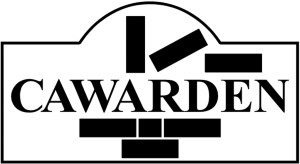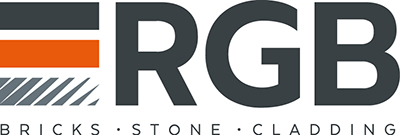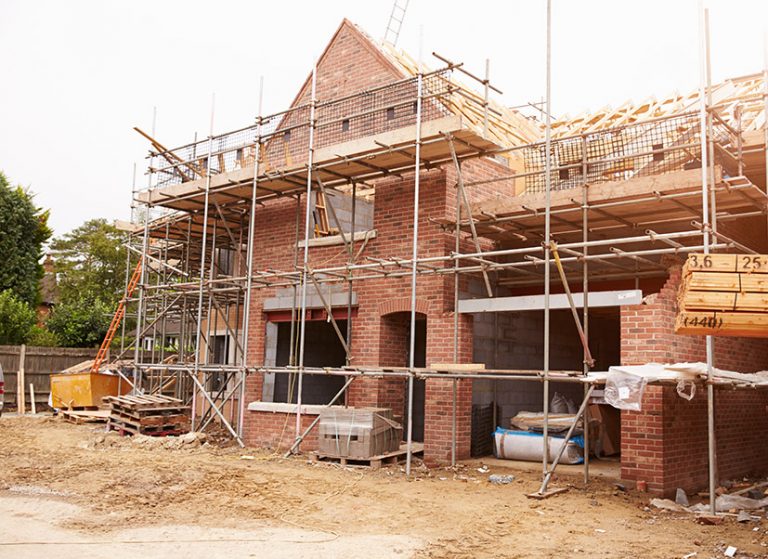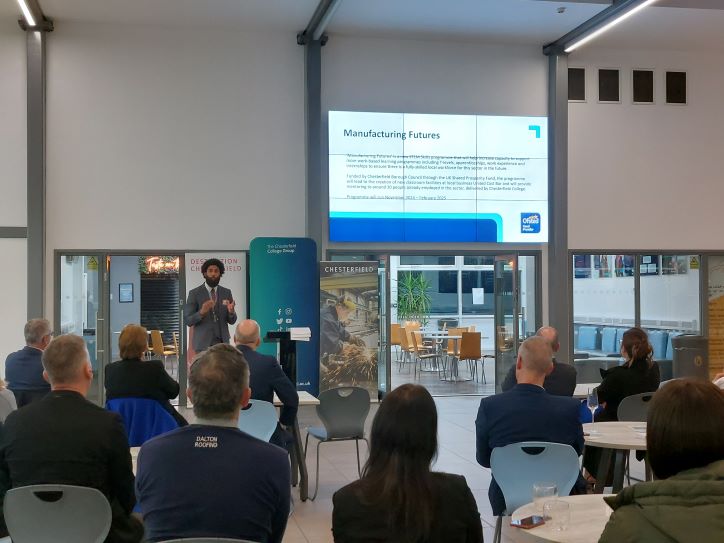Government consults on plans to modernise pension provision
New team member, promotion, and investments at Mackworth Vehicle Conversion Specialists
Frasers Group acquires over 1 million sq ft of retail assets
Derby City Council instructs Salloway to sell Allestree Hall
Refurbishment begins at Sutton Theatre
WBR Group sponsors Navali Navratri event, supporting Saarthi charity
Barratt’s £2.5 billion purchase of rival Redrow Homes cleared
The Competition and Markets Authority (CMA) has cleared Leicestershire-based housebuilding giant Barratt’s £2.5 billion purchase of rival Redrow Homes.
It follows the CMA concluding a Phase 1 investigation into the deal, where it found an area of concern regarding the supply of new build private residential housing in Whitchurch and Nantwich.
The businesses each have major, competing, developments in one of the towns and have agreed to sell remaining homes through an independent agent, with Savills appointed for this.
Moreover, a monitoring trustee and an independent professional quantity surveyor will be appointed to monitor and oversee the merged entity’s compliance with commitments including that unbuilt houses and unbuilt infrastructure in Redrow’s Kingsbourne development in Nantwich are constructed to Redrow’s quality standards and completed in a timely manner; and that aftersales services are provided to all homebuyers to a level meeting or exceeding Redrow’s pre-merger standards.The CMA has now published its acceptance of Barratt and Redrow’s undertakings and will not be referring the acquisition to a phase 2 investigation.
Barratt will commence the integration of the businesses.
David Thomas, CEO of Barratt, said: “Today is a significant milestone for Barratt Redrow, as we come together as one organisation. With this combination, we have created an exceptional housebuilder in terms of quality, service and sustainability, able to accelerate the delivery of the homes this country needs.
“Together, we offer a broader range of homes and price points for our customers who we will continue to put at the heart of everything we do. Our focus now is on integrating our businesses as efficiently and effectively as we can to deliver the expected benefits of the Combination.
“We will leverage the best of both companies to deliver significant benefits to our people, our customers and our supply chain partners, and ensuring that Barratt Redrow is set up to deliver long term value to all of its stakeholders.”
New rail link could create 3,000 jobs, says Midlands Connect
Midlands Connect believes that if the rail link is constructed between Coventry, Leicester and Nottingham 3,000 roles will be created during the lifetime of the construction and in the supply chain.
This peaks in 2031 at around 850 and averages at around 400 every year. The majority of the roles predicted are skilled occupations in engineering, operatives or project management.
The company also believes 70 apprentices could be recruited and trained over the course of the programme.
A spokesman said: “Over the course of the seven-year project, linking Coventry, Leicester and Nottingham by rail could generate an additional £68m in economic value as a result of jobs created in both of the Midlands, and nearly £11m in Social Value benefits – which include environmental benefits, wellbeing benefits and social benefits. This is on top of the traditional transport and wider economic benefits outlined in the business case, which amounted to £170m at the last update.
“Journey times along the route would be cut significantly, with trips from Coventry to Leicester falling from 54 to as low as 30 minutes, with trips from Coventry to Nottingham falling to around 65 minutes. Loughborough and East Midlands Parkway could also have new, direct and more frequent links to Coventry.”
Currently, just 3% of trips between Coventry and Leicester are made by train; compared to 30% of journeys made between Coventry and Birmingham.
Average speeds for trains between Coventry and Leicester currently fall under 30mph, compared to average speeds of over 100mph for trains from Coventry to London.
Andrew Clark, Integrated Transport Programme Lead at Midlands Connect said: “This project is so much more than just a rail scheme, it will create high-skilled and high-paid jobs, grow our economy and kick-start careers, thanks to the creation of apprenticeship roles.
At the moment it can take up to 70 minutes to travel less than 25 miles between Coventry and Leicester, and passengers have to change trains halfway – it’s simply not good enough – our plans will fix that and link key Midland cities, once and for all.”
Sir Peter Soulsby, City Mayor of Leicester said: “This project is a priority for the Council. It will allow people to travel easily between Leicester and Coventry. Only 3% use the train now as there is no direct service, leading to high car use, on congested roads.
“The creation of high-skilled, high-paid jobs, is a bonus, as is the creation of apprenticeship roles, kick-starting careers. This all helps to deliver a stronger economy as well as social value benefits to our local community.”
The times they are a-changing: By Jennie Brown, tax partner at Streets Chartered Accountants
- Increasing IHT rates
- Business Property Relief (BPR):
- Agricultural Property Relief (APR): could farmers get taxed more?
- Nil Rate Band and Residence Nil Rate Band: are limits changing?
- CGT rate hikes: sell now or risk higher rates
- CGT reliefs: will entrepreneurs lose out?
- Anti-Avoidance Crackdowns: be aware of possible anti forestalling
Motorpoint Group returns to profit
Motorpoint Group, the Derby-based independent omnichannel vehicle retailer, has returned to profit.
According to a half year trading update for the six months ended 30 September 2024 (H1 FY25), profit before tax is expected to be £2m, improving from a £3.7m loss in the same period of last year.
Meanwhile, the businesses saw strong retail volume growth of 17% in H1 FY25 compared with H1 FY24. It comes as the firm highlights easing macroeconomic headwinds in H1 FY25, used car prices and margins remaining broadly stable and customer sentiment improving.Mark Carpenter, Chief Executive Officer of Motorpoint Group PLC, said: “The resilience of the Motorpoint business model has been proven once again and I am delighted to confirm that the successful execution of our Brilliant Basics programme during FY24, alongside the easing of macroeconomic pressures, has resulted in a return to profitability.
“We also welcomed the first interest rate cut in August, the same month that we achieved our highest performing retail volume since March 2022.
“This solid performance in the first half of the year stands us in good stead as we look to progress our strategy to accelerate growth, and I would like to thank our incredibly hardworking colleagues for what they have delivered so far this year. I am confident that we are entering the second half with strong momentum.”
New Derby City Centre Design Guide launches for consultation
Training initiative launched to help manufacturers engage with young talent
Renewable electricity supplier swoops for Lincolnshire solar installation company
Good Energy Group, the renewable electricity supplier and innovator in clean energy services, has acquired Amelio Solar, a Lincolnshire-based solar installation company.
The acquisition represents a further step in delivering on Good Energy’s strategy to expand its capability in decentralised energy services by significantly expanding its geographical presence in the solar installation market. Amelio Solar has established operations in Lincolnshire and the north of England.
Amelio Solar has built a reputation for delivering rooftop solar solutions for businesses, education and public sector entities. This builds upon Good Energy’s current offering, that is weighted to domestic installation, and is in line with the company’s vision of powering a cleaner, greener future by making it simple to generate, use and share clean energy.
Good Energy has acquired 100% of the issued share capital of Amelio Solar on a debt-free, cash-free, basis for an initial consideration of £5.5 million, payable in cash upon completion. Further deferred consideration of up to £0.5 million may become payable in cash in the first quarter of 2025, subject to Amelio Solar achieving gross profit targets for the year ending 31 December 2024.
For the financial year ended 31 December 2023, Amelio Solar reported revenue of £7.1 million and profit before tax of £1.4 million.
Richard Jones, Amelio Solar founder and Solar Energy UK board member, will remain employed to support the post-acquisition transition and integration period.
Nigel Pocklington, CEO of Good Energy, said: “Amelio Solar is a perfect fit for Good Energy as we continue to grow our clean energy service offerings, especially in the commercial and public sectors where demand for solar installations remains strong and less susceptible to the cyclical fluctuations seen in the domestic market.
“Amelio Solar’s proven ability to deliver large, complex solar projects will enable us to better support businesses and public sector bodies in cutting their carbon emissions, while positioning Good Energy as a leader in commercial solar solutions.”
Care home set for Lincolnshire village following land sale
Watch the East Midlands Bricks Awards 2024 as the event unfolded

Commercial Development of the Year – sponsored by Global HSE Group
Winner
G F Tomlinson – The Air and Space Institute, Newark
Runners up
Brackley Property Developments – The Dock Extension, Leicester
Pick Everard – Nottingham Central Library

Contractor of the Year – sponsored by EMEC Ecology
Winner
Clegg Construction
Runners up
Cawarden
Winvic

Deal of the Year – sponsored by Tutum Consulting
Winner
heb Surveyors – The Oaks, Mansfield
Runners up
FI Real Estate Management – The Quad, Chesterfield
Freeths – Former Boots factory site, Beeston

Developer of the Year – sponsored by IMA Architects
Winner
Vistry Group East Midlands
Runners up
Indurent
Wavensmere Homes

Excellence in Design – sponsored by Cawarden
Winner
Distinctive Developments – Woodwell and Meadow Barn
Runners up
G F Tomlinson – The Air and Space Institute, Newark
Design Haus – Musters Road

Most Active Agent – sponsored by Roy Geddes Bricks
Winner
Rigby & Co
Runners up
FHP Property Consultants
Salloway Property Consultants

Architects of the Year – sponsored by Mather Jamie
Winner
Matthew Montague Architects
Runners up
IMA Architects
Design Haus Architecture

Residential Development of the Year – sponsored by Devello
Winner
Distinctive Developments – Woodwell and Meadow Barn
Runners up
Phoenix Brickwork UK LTD – IQ Nelson Court
Chevin Homes – Chevin Close

Responsible Business – sponsored by Press for Attention PR
Winner
Stepnell Ltd
Runners up
Cawarden
Cora

Sustainable Development of the Year – sponsored by Viridis Building Services Ltd
Winner
Henry Brothers Construction Ltd – Alfreton Park School
Runners up
CPMG – Sir Peter Rubin Centre for Veterinary Education
Keepmoat – Gedling Green

Overall Winner – sponsored by Blueprint Interiors
Distinctive Developments
See the event in the images below, taken by Richard Picksley. Thanks to all our sponsors for supporting the East Midlands Bricks Awards 2024. Business Link Magazine looks forward to returning next year for the East Midlands Bricks Awards 2025!










Held at:





































































